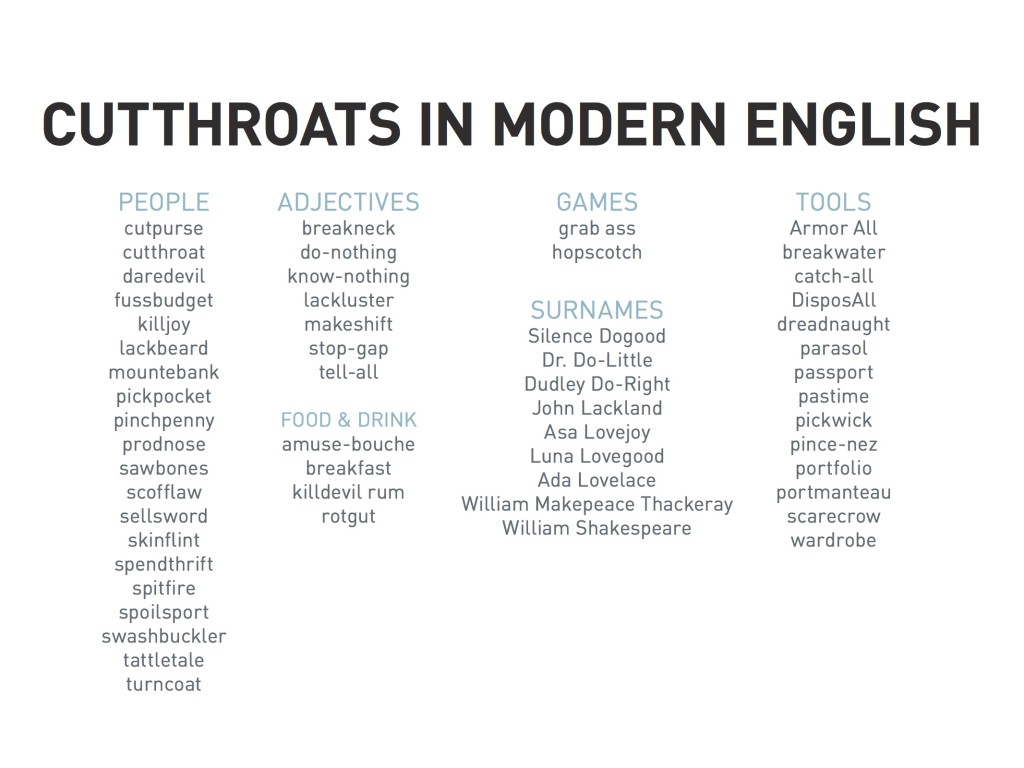Cutthroats are compounds that name people and things by describing what they do. Cutthroats are made from a transitive verb and a noun, where the noun is the direct object of the verb.
Cutthroats are found in many languages, but my research focuses on the inspired and vulgar creations found in English. Cutthroat productivity is very limited in English, and yet I have collected over 1,350 of them in the last 8 years, far beyond previous estimates. You may be familiar with the following cutthroats:
For a lively primer on compounds and cutthroats, watch my 2013 Ignite talk (5 min) or my 2016 Odd Salon talk (20 min.)
For a brief academic summary of cutthroats, read my 2015 DSNA/SHEL abstract.
For an overwhelming list of all cutthroat candidates catalogued thus far (there are more), check out these 1273 cutthroats.
For more perspective on the topic, read the articles in the 2015 Cutthroat World Tour, or seek out the research of linguists like Volker Gast and Benedicte Nielsen Whitehead.
For my overworked and undercooked 2012 MA thesis, read Hughes Dissertation 2012
These compounds have been called many names in the past, but it appears that I’m the first to call them cutthroats. You may be more familiar with tosspot, turncoat, scarecrow, wrap-rascal, Shakespeare, or terpsimbrotos. I use the term cutthroats to unify the bunch because cutthroat is the most representative example of the pattern. It is a calque from French coupe-gorge, and many early English cutthroat compounds were French loanwords, which were then translated and played with, creating variations and semantic clumps. Those loans influenced the topics covered by this pattern in the following centuries. I am aware that introducing a new term does not eliminate the problem of multiple terms.
Hi Brianna,
congratulations on a great blog, and for getting people’s attention to one of my favourite topics.
Also, thank you for referring to my work. Here is a link to a talk that gives a larger historical perspective http://podcast.hum.ku.dk/mediaviewer/?objectId=767
Good luck with everything!
Benedicte
I hope readers of this comment are adult enough not to condemn it. This is about language.
I noticed this form of compound about 45 years ago, when I saw cutpurse in some text and recognized how it related to pickpocket.
It was only a few years ago, though, that I realized this concept explains a word I’d heard as a youth, dips*it. Taken literally this must be a synonym for honeydipper, which I understand was a derogatory term for people who cleaned out outhouses that had reached capacity. Or maybe septic tanks. Google N-grams shows both words have a similar trajectory.